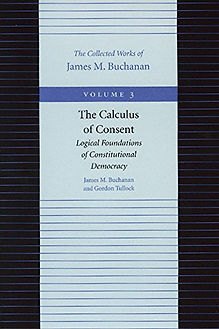MOST IMPORTANT ECONOMICS BOOKS OF ALL TIME
8/
Soon to be detailed...
The Calculus of Consent
by James M. Buchanan and Gordon Tullock

7/
Soon to be detailed...
The Economic Approach to Human Behavior
by Gary S. Becker

6/
Friedrich Hayek (1899 - 1992) was an Austrian-British economist who spent his early life serving in World War I, the experience of which influenced his views and his desire to avoid the mistakes that eventually led to the Great War. Hayek studied at the University of Vienna, where he would earn doctorate degrees in law and political science in 1921 and 1923, respectively, before going on to spend his academic career at the London School of Economics and the University of Chicago.
After joining LSE in 1931, Hayek would soon become one of the world's leading economists for his theory that changing prices communicate information - for which, he would eventually go on to receive the 1974 Nobel Memorial Prize in Economic Sciences, partly due to his work in this area.
His book, The Road to Serfdom, is one of the most influential books on the philosophy and politics of free-market capitalism. Hayek's main thesis is the notion that introducing government control over society, regardless of how minimal the initial intervention/ influence may be, leads to greater and greater government power, until the freedom of individuals is eroded in favour of the collective, or the state. This is a must-read for anyone that is interested in understanding the dangers present in increasing the size and role of government in society; moreover, the book offers an interesting perspective as it was written and published during the Second World War.
The Road to Serfdom
by Friedrich Hayek

5/
Soon to be detailed...
An Essay on the Principle of Population
by Thomas Robert Malthus

4/
Soon to be detailed...
Principles of Economics
by Alfred Marshall

3/
Milton Friedman (1912 - 2006) is one of the most influential economists of all time, and one of the key figures associated with the Chicago School of Economics. Friedman was awarded the 1976 Nobel Memorial Prize in Economics for his work on consumption analysis and monetarism. Furthermore, Friedman influenced several political figures throughout the 20th Century including U.K. Prime Minister Margaret Thatcher and U.S. President Ronald Regan.
In his book, Capitalism and Freedom, Friedman argues that capitalism - specifically, free-market capitalism - is a necessary, but not a sufficient, condition for freedom. Meaning, for individuals to be free, Friedman believes a necessary condition is free-market capitalism; however, this is not sufficient on its own, as there can still be oppressive governments and laws that restrict people's freedom. On the other hand, without free-market capitalism, individuals will never be free as a portion of their life is still being controlled and influenced by the State.
In Capitalism and Freedom, Friedman covers a variety of topics ranging from monetary policy to conscription - he stated that one of his proudest achievements was influencing public debate to eventually abolish conscription (or, the draft) in the United States. I cannot recommend this book highly enough for anyone that is interested in developing their understanding of free-market economics and liberty, in general.
Capitalism and Freedom
by Milton Friedman

2/
Soon to be detailed...
The General Theory of Employment, Interest, and Money
by John Maynard Keynes

1/
Soon to be detailed...
The Wealth of Nations
by Adam Smith

